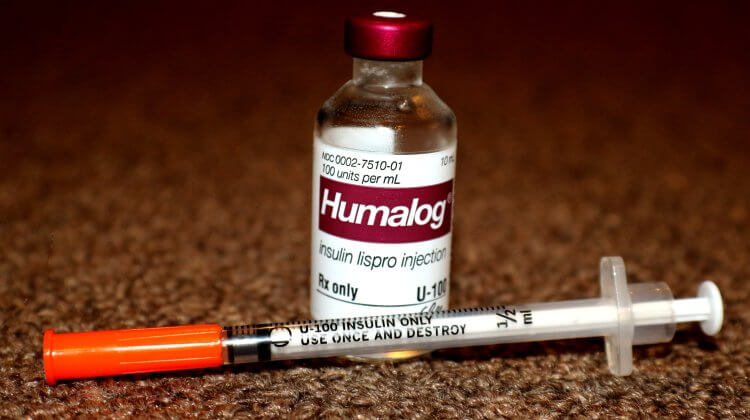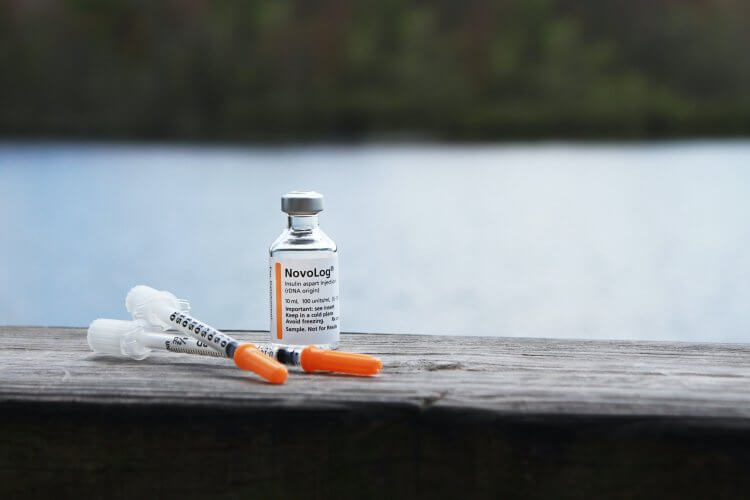
Disclaimer: These are bodybuilder opinions about insulin, some of which are wrong. Please do not take these opinions as advice. Stay tuned for the paper where we evaluate bodybuilder knowledge and present the facts about insulin.
One of the most misunderstood and debated drugs in bodybuilding is insulin. This is because we have no science to act as a foundation for the ways that bodybuilders use insulin. This makes all bodybuilder knowledge about insulin use broscience. By using this term ‘broscience’ I am not meaning to discredit this knowledge. Experiential knowledge is very important, and often the athletes are ahead of the science, and can even be right when the science is wrong (Holt 2009). But sometimes what bodybuilders spout about insulin is complete bullshit. So how do you know who to listen to?
Bodybuilder practice of insulin is based on heaps of n=1 studies, and a bunch of gurus who spout science-y sounding explanations. Few of these guys have any scientific or medical training, let alone expertise in endocrinology. Some of them have no fucking clue what they are talking about, but act like they do. There may be some gems of knowledge in this body of knowledge but most people (including myself) have no idea how to separate the gems from the shit.
What I am hoping to do is to change that. As a social scientist I am not qualified to judge bodybuilder knowledge myself. Many bodybuilders have a much better grasp of how insulin works and how it should be used than I do. Instead what I bring to the table is years of research in bodybuilding communities and a whole heap of different bodybuilder perspectives on insulin for bodybuilding collected from 20 interviews with insulin users with experience of insulin ranging from months to decades, over 30 hours of bodybuilder YouTube videos on insulin, and forum and social media posts on insulin use for bodybuilding. I also have an endocrinologist colleague who is going to help me make sense of this data. And not just any endocrinologist, but one who is happy to admit when athletes are right and science is wrong (indeed I cited him above). It is time to turn the insulin broscience into science, and correct some potentially dangerous myths.
So, in this paper I want to present some of the disagreements about insulin that I am hoping to resolve with the help of my colleague, Richard Holt. I am writing this paper not only to demonstrate the diverse, and even contradictory, views that bodybuilders hold about insulin, but also hopefully to inspire you to add your two cents. How do you use insulin and why? Which of the views presented here do you agree with and which don’t you agree with? The fuller the picture of bodybuilder knowledge I get, the better able we will be to evaluate this knowledge.
As an anthropologist I am trained not to judge, and to not view one kind of knowledge as superior to another. Bodybuilders know stuff that medicos could never know because they have a different focus and different priorities. Therefore, I usually just collect and present this knowledge and leave it for others to judge. But whilst I was collecting this insulin data I had a few bodybuilders ask me: ‘so, who is correct?’. By that they mean, ‘whose views most align with the available scientific evidence?’. Since the age of enlightenment in bodybuilding (which I have discussed in a previous paper on here) bodybuilders want to practice bodybuilding in a way that is scientifically informed. This is why this time I plan to go beyond just reporting bodybuilder knowledge and practice, and have enlisted someone who can perform a scientific evaluation of this bodybuilder knowledge.
I won’t say which bodybuilders I interviewed, whose videos I reviewed, and whose words I collected from forums, as I have an ethical agreement with my university to not reveal the identities of people who participate in my research so as to avoid any risk of harm to them. Therefore, all names are pseudonyms. Suffice is to say that I interviewed some individuals who are recognised as world experts in the use of insulin for bodybuilding. I also included your average Joe bodybuilders. This is what I found.
How anabolic is insulin?
Bodybuilders disagree about how anabolic insulin is. A minority state that exogenous insulin is not directly anabolic. Some suggest insulin only induces anabolism by increasing appetite.
A very small minority of bodybuilders suggest that the impact of exogenous insulin is mainly, or purely, cosmetic, in that insulin primarily makes the muscle look ‘fuller’ (rather than actually increasing the muscle size) by increasing water retention.
In contrast many bodybuilders claim that insulin is the strongest anabolic hormone.
Some participants described insulin use as resulting in muscular increases of 3-6 kg per week over and above what could be attained through anabolic androgenic steroid (AAS) use alone, or AAS and growth hormone (GH) use combined. However, these claims were disputed by other participants. Two participants felt the benefits of insulin were not sufficient, and they did not plan to use insulin again. One of these no longer recommends insulin use to his clients.
While some bodybuilders suggest that insulin use alone is anabolic, others suggest that insulin is only significantly anabolic in synergy with AAS and hGH (described as the ‘anabolic triumvirate’ in a video).
How does insulin work as an anabolic agent?
Most bodybuilders agree about how insulin works but have more or less science in their explanations.
Bodybuilders typically describe insulin as “shuttling” or “driving” nutrients into muscle cells. Insulin is described as a “key” that unlocks the cells, or a “bus” that delivers nutrients. Some bodybuilders cite scientific literature when describing the action of insulin:
It seems that insulin has at least a permissive effect on protein synthesis, such that its basal levels are needed for normal myofibrillar protein synthesis (MPS), but elevating insulin after a meal may not increase MPS (Greenhaff et al., 2008). However, insulin promotes muscle anabolism (protive protein balance) via its inhibitory effect on muscle protein breakdown (MPB) (Deutz and Wolf 2013). Still, insulin may increase MPS via greater (essential) amino acid presentation to skeletal muscle that is brought on by increased vasodilatation-associated blood flow (Biolo et al., 1995; Fujita et al., 2006; Timmerman et al., 2010). [Chad via email].
Most agree that:
- insulin is very effective at shuttling nutrients into muscle cells, but it also shuttles nutrients into fat cells.
- insulin is anabolic because of its role in nutrition partitioning as it works in concert with GH and IGF-I.
- insulin promotes muscle anabolism via its inhibitory effect on muscle protein breakdown.
- insulin (as well as AAS and GH) promotes muscle protein synthesis only in the presence of an adequate supply of amino acids.
- insulin plays a role in the physiological control of reproduction by effects on Gonadotropin-releasing hormone (GnRH)/ luteinising hormone (LH) secretion.
Insulin is also described by some bodybuilders as anti-catabolic.
One high-profile bodybuilder stated that insulin should only be used if an individual is insulin deficient:
Sometimes it’s a good idea to take insulin just to help the pancreas do its job. … if your body was producing enough of its own, why would you need to take any exogenous insulin? It does – in other words, it’s not going to do anything beneficial. It’s only going to help if you’re not producing enough insulin. So you have to first establish if you’re not producing enough insulin. Get a glucometer, check your blood sugars. … So insulin should only be used if you have a deficiency of insulin, because you’re using a lot of GH or because you’re eating an exorbitant amount of carbs [Alan].
One bodybuilder also stated that insulin’s anabolic effects are due to its osmotic actions, and another to its ability to open “all of the receptors in your body”.
How dangerous is insulin?
While some bodybuilders warn others off insulin because it can put you in a coma or kill you, most feel that the risks of insulin have been overstated, and some suggest that death from insulin use is extremely unlikely. Many have sentiments along the lines of “you’d have to be a dickhead to kill yourself with insulin”.
While the deaths of several high-profile bodybuilders during the course of my research were initially suggested by members of the bodybuilding community to be insulin related, insulin was not implicated in the official causes of their deaths. I have not come across a confirmed case of death, or significant harm, as a result of insulin use for bodybuilding, although some bodybuilders have stated that they know someone who has died as a result of insulin use (and one did have a serious car accident as a result of going hypo on a motorway but luckily no one was injured). There are two instances of bodybuilders going into hypoglycaemic comas reported in the medical literature (Heidet et al., 2019; Petrovic et al., 2015). Whether the lack of confirmed deaths is because insulin is not dangerous, or because it is not commonly tested for, or difficult to detect, I do not know.
One bodybuilder suggested that premature deaths resulting from insulin use may not be only due to hypoglycaemia, but suggested that increased levels of insulin over the lifetime shortens lifespan, and thus bodybuilders were putting themselves at risk in that regard.
Some bodybuilders suggest that insulin is one of the safest drugs in their arsenal particularly as compared to DNP and trenbolone (I have described the harms of tren as described by bodybuilders previously). Some even suggest that insulin is safer than any AAS.
While all bodybuilders described at least mild symptoms of hypoglycaemia at some points in their insulin use, most hypoglycaemic episodes were during the early stages of use when they were working out their insulin dosing, or were attributed to their stupidity (e.g. forgetting to eat). All bodybuilders stated that hypoglycaemia was easily managed by consuming sugars.
How necessary is insulin for professional bodybuilding?
Many suggest that to be competitive as a pro bodybuilder you must use insulin. However, others suggest it is not necessary.
Insulin is a part of bodybuilding now, it’s a part of it. It’s like whitened teeth. Everybody whitens their teeth, everybody has these gleaming white teeth. If you have one guy that doesn’t have them, yo go “what’s wrong with you?” … if you’re not doing insulin, which some pros do not, some people don’t need it, then that look is a little bit different from other bodybuilders and you could stand out in a bad way .
Did insulin ruin bodybuilding?
Many attribute the significant increase in muscularity of the mass monsters to insulin and/or growth hormone. Some suggest that therefore insulin ruined bodybuilding as the focus shifted from aesthetics to size at the expense of aesthetics. Others have additional critiques of the insulin look:
Before insulin come in, go back to the early days of Bertil Fox, Tom Platts, Arnold, Sergio, their muscle had this hard granite look, looked like it was carved out of stone. Now you get these guys, sure they are big and freaky like the Ramy’s and all these guys, they’re big but they don’t have that dense hard look .
But then others suggest that Dorian Yates was the first to bring an insulin-enhanced physique to the Olympia stage and he is often described as having a granite-like look.
Some suggest that insulin (and/or growth hormone) causes ‘bubble gut’ or ‘Palumboism’, and one source stated that insulin caused organomegaly. For these reasons some state that insulin has ruined the bodybuilding aesthetic.
How much insulin?
There’s a wide range of insulin dosing being practiced among bodybuilders. I have spoken to bodybuilders who use a maximum of 4iu per day, and others who have used a max of 360iu per day! However, inline with past academic research which reported dosing of between 10-20iu per day (Dawson and Harrison 1997; Evans 1997; Hildebrandt et al., 2007), and surveys conducted within the community, I found that most bodybuilders use doses at the lower end of the spectrum. But my sample tended to use more than has previously been reported in the academic literature and in the community, with a median daily dose of 40 units, and a median dose of 0.39 units per kilogram of bodyweight.
What type of insulin?
Most bodybuilders only use one form of insulin (fast or rapid-acting), although a quarter of those interviewed (n=20) also used a long-acting insulin.
How much carbs with insulin?
We all know that the most frequently mentioned ratio of barbs to insulin is 10 grams of carbohydrate to 1 unit of insulin. But not all bodybuilders adhere to this ratio. Several participants had no set ratio of carbohydrate to insulin, whilst the remainder used a range of ratios (5-20 grams per unit of insulin) with a mean and median of 9 grams of carbohydrates to every unit of insulin.
When is the best time to take insulin?
Most bodybuilders took insulin with meals, but considering that bodybuilders are always eating that doesn’t tell us much. There was a great deal of debate about the most effective time to use insulin with some suggesting that pre-workout is the most effective time, and others stating that this was irresponsible use as it is difficult to determine how much carbohydrate will be burnt during the workout, and thus pre-workout insulin use could be dangerous. Some bodybuilders use insulin pre- and post-workout, and others only post-workout.
Does insulin use cause diabetes or protect against it?
Some bodybuilders suggest that recreational insulin use puts bodybuilders at risk of developing diabetes. Other bodybuilders suggest that their use of insulin reduces the risk of diabetes as it lessens the impact of bodybuilding diets.
What do you think?
Do you agree with the above or disagree? Is there anything you would like to add? Join the conversation in the forum to add your voice so as to ensure that we get the most effective evaluation of bodybuilder knowledge. That way we finally have an academic resource we can use to counter the bullshit that is spread about insulin. Watch this space for a future paper which evaluates this knowledge from a scientific perspective and puts some of the myths to rest.
Disclaimer: These are bodybuilder opinions about insulin, some of which are wrong. Please do not take these opinions as advice. Stay tuned for the paper where we evaluate bodybuilder knowledge and present the facts about insulin.
References cited
Biolo G, Declan Fleming RY and Wolfe RR. (1995) Physiologic hyperinsulinemia stimulates protein synthesis and enhances transport of selected amino acids in human skeletal muscle. The Journal of Clinical Investigation 95: 811-819.
Dawson RT and Harrison MW. (1997) Use of insulin as an anabolic agent. British Journal of Sports Medicine 31: 259.
Deutz NE and Wolfe RR. (2013) Is there a maximal anabolic response to protein intake with a meal? Clinical Nutrition 32: 309-313.
Evans NA. (1997) Gym and tonic: a profile of 100 male steroid users. British Journal of Sports Medicine 31: 54.
Fujita S, Rasmussen BB, Cadenas JG, et al. (2006) Effect of insulin on human skeletal muscle protein synthesis is modulated by insulin-induced changes in muscle blood flow and amino acid availability. American Journal of Physiology-Endocrinology and Metabolism 291: E745-E754.
Greenhaff PL, Karagounis LG, Peirce N, et al. (2008) Disassociation between the effects of amino acids and insulin on signaling, ubiquitin ligases, and protein turnover in human muscle. American Journal of Physiology-Endocrinology and Metabolism 295: E595-E604.
Heidet M, Abdel Wahab A, Ebadi V, et al. (2019) Severe Hypoglycemia Due to Cryptic Insulin Use in a Bodybuilder. Journal of Emergency Medicine 56: 279-281.
Hildebrandt T, Langenbucher JW, Carr SJ, et al. (2007) Modeling Population Heterogeneity in Appearance- and Performance-Enhancing Drug (APED) Use: Applications of Mixture Modeling in 400 Regular APED Users. Journal of Abnormal Psychology 116: 717-733.
Holt RIG. (2009) Is human growth hormone an ergogenic aid? Drug Testing and Analysis 1: 412-418.
Petrovic I, Petrovic S, Vujanac K, et al. (2015) Clinical Presentation Of The Abuse Of Insulin: Hypoglycaemic Coma And Aspiration Pneumonia In Non-Professional Bodybuilders. Serbian Journal of Experimental and Clinical Research 16: 347-351.
Timmerman KL, Lee JL, Fujita S, et al. (2010) Pharmacological Vasodilation Improves Insulin-Stimulated Muscle Protein Anabolism but Not Glucose Utilization in Older Adults. Diabetes 59: 2764-2771.

About the author
Mair Underwood is an anthropologist who explores body cultures. She has been living in online bodybuilding communities for the last 6 years (she has even been inspired to start lifting). Through forums and social media she has learnt about bodybuilding culture. She has been particularly focussed on enhancement drug use, and she works to increase understanding of, and support for, people who use enhancement drugs.

Leave a Reply
You must be logged in to post a comment.